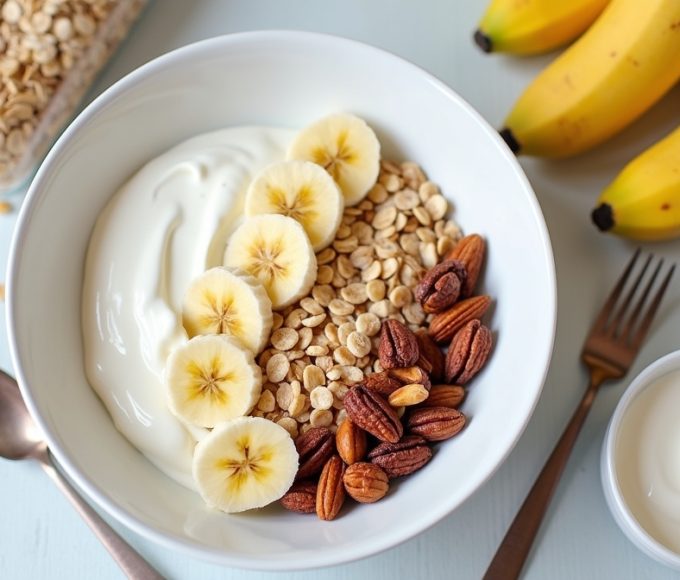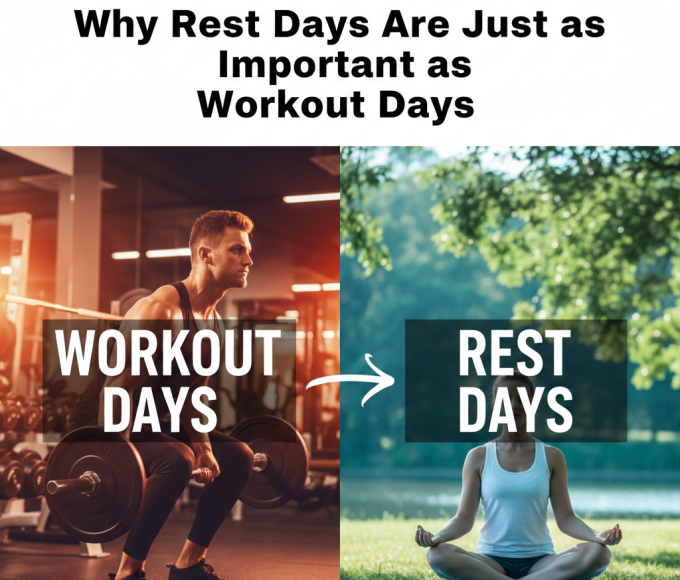You hit the gym, lift heavy, and eat plenty of protein — but are you getting enough sleep?
If not, you could be holding back your muscle growth, recovery, and performance more than you think. Sleep isn’t just “rest” — it’s a crucial recovery process where your body repairs muscle fibers, releases growth hormones, and restores energy.
Let’s explore what science says about how sleep impacts muscle growth — and how to optimize your recovery while you rest.
1. The Science Behind Sleep and Muscle Growth
When you train, your muscles experience small tears that need to be repaired. This repair process is what builds strength and size. But here’s the key: most of this recovery happens during deep sleep, not during your workout.
During slow-wave sleep (deep sleep):
💪 Protein synthesis peaks
🌙 Growth hormone is released
🔋 Energy stores (glycogen) are replenished
❤️🔥 Inflammation and stress hormones (like cortisol) decrease
Simply put — no sleep, no muscle growth.
2. How Lack of Sleep Affects Muscle Recovery
Chronic sleep deprivation can cause:
- 🔻 Reduced growth hormone production — less muscle repair
- 🔻 Higher cortisol levels — increased muscle breakdown
- 🔻 Poor glycogen storage — less workout energy
- 🔻 Weaker immune function — slower recovery
Studies show that even one night of poor sleep can reduce reaction time, endurance, and strength by up to 20% the next day. Over time, this leads to plateaus in performance and slower progress.
3. Optimal Sleep Duration for Muscle Growth
Experts recommend:
🕐 7–9 hours of sleep per night for active adults and athletes.
However, it’s not just how long you sleep — it’s also about quality. Deep, uninterrupted sleep cycles are when your body truly rebuilds muscle tissue and restores hormones.
💤 Signs You’re Getting Quality Sleep:
✅ You wake up refreshed
✅ You fall asleep easily within 20 minutes
✅ You don’t wake up often during the night
✅ You don’t rely on caffeine to stay alert
4. Tips to Improve Sleep Quality for Better Muscle Recovery
Here’s how to optimize your sleep like a pro athlete:
🌙 1. Stick to a Sleep Schedule
Go to bed and wake up at the same time daily — even on weekends. This keeps your circadian rhythm (body clock) in sync.
🌡️ 2. Keep Your Room Cool and Dark
The ideal sleep temperature is 18–20°C (64–68°F). Darkness signals your body to release melatonin — your sleep hormone.
📱 3. Avoid Screens Before Bed
Blue light from phones and TVs can delay melatonin release. Try a digital detox 30–60 minutes before bedtime.
🍽️ 4. Don’t Eat Heavy Meals Late
Late-night eating, caffeine, or alcohol can disrupt sleep cycles. Keep your last meal light and at least 2 hours before bed.
🧘 5. Relax Before Sleep
Stretching, deep breathing, or meditation can lower cortisol and calm your mind before bed.
5. Supplements That Support Sleep and Recovery
Some natural aids that promote better rest include:
🌿 Magnesium – helps muscle relaxation and sleep quality
💤 Zinc + Vitamin B6 – supports hormone regulation
🌙 Melatonin – assists with falling asleep faster
🍒 Tart cherry juice – naturally increases melatonin
Always consult a healthcare professional before adding supplements to your routine.
6. The Sleep-Fitness Cycle
Better sleep = better workouts.
Better workouts = deeper sleep.
It’s a positive feedback loop — prioritize both, and your body will reward you with strength, focus, and faster recovery.
Conclusion
Muscle growth doesn’t just happen in the gym — it happens while you sleep.
By improving your sleep quality, you’ll enhance recovery, balance hormones, and optimize every rep you perform.
So tonight, skip the late-night scrolling and give your body what it truly needs — rest, recovery, and results.
Call-to-Action (CTA)
🌙 Ready to maximize your gains while you sleep? Share your best nighttime recovery habits with #FitVerraSleepBetter and join the fitness conversation.





























Stretching, deep breathing, or meditation can lower cortisol and calm your mind before bed.remember it
i agree with that i will follow this advice
Thanks for sharing 👍
Thanks for sharing 👍, it’s a nice body workout procedure to follow